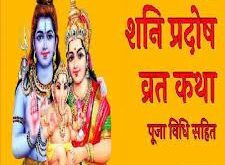 Mesha Sankranti is also known as Maha Vishuva Sankranti. According to Vedic astrology on this day the Sun enters Mesha Rashi or Aries Zodiac. This day marks the beginning of the New Year in most Hindu Solar Calendars.
Mesha Sankranti is also known as Maha Vishuva Sankranti. According to Vedic astrology on this day the Sun enters Mesha Rashi or Aries Zodiac. This day marks the beginning of the New Year in most Hindu Solar Calendars.
Various Solar calendars followed in India e.g. Oriya calendar, Tamil Calendar, Malayalam Calendar and Bengali Calendar mark the first day of the year (or Vishu Kani for Malayalam calendar) based on Mesha Sankranti. Solar calendars follow different rules to mark the first day of the year depending on exact time of the Sankranti.
In Orissa (officially Odisha) first day of the year is celebrated on the same day as the Sankranti if it occurs before Hindu midnight. Mesha Sankranti is celebrated as Pana Sankranti in Orissa.
In Tamil Nadu when Sankranti takes place after sunrise and before sunset the year begins on the same day. If Sankranti takes place after sunset then the year begins on the following day. Mesha Sankranti is celebrated as Puthandu in Tamil Nadu.
In Malayalam calendar, the day between sunrise and sunset is divided into five parts. If Sankranti takes place within the first three of them the year begins of the same day, otherwise it begins on the following day. In other words if Sankranti occurs till Madhyana it is observed on the same day otherwise it would be observed on next day. Mesha Sankranti is celebrated as Vishu in Kerala.
In Bengal, when Sankranti takes place between sunrise and midnight of the day the year begins on the following day. If it occurs after midnight the year begins on the next following day. Mesha Sankranti is celebrated as Naba Barsha or Pohela Boishakh in West Bengal.
Mesha Sankranti is celebrated as Bihu in Assam and as Vaisakhi in Punjab.
Above rules are good to start first day of the year for civil reckoning. However auspicious time, for Dan-Punya activities, is independent of above rules and should be done after considering exact moment of Sankranti because only certain time duration before or after each Sankranti moment is considered auspicious for Sankranti related activities.
For Mesha Sankranti ten Ghatis before and ten Ghatis after the Sankranti moment are considered Shubh or auspicious and this time window is taken for all Dan-Punya activities. If Sankranti occurs after sunset but before midnight then later half of the day is considered and if Sankranti occurs after midnight then first half of the next day is considered for Mesha Sankranti rituals.
In South India Sankranti is called as Sankramanam.
 पौराणिक कथाओं, प्रेरक क्षण, मंदिरों, धर्मों, फिल्मों, हस्तियों के बारे में दिलचस्प जानकारी, हजारों गाने, भजन, आरती के बोल हैं Your wish may come true today…
पौराणिक कथाओं, प्रेरक क्षण, मंदिरों, धर्मों, फिल्मों, हस्तियों के बारे में दिलचस्प जानकारी, हजारों गाने, भजन, आरती के बोल हैं Your wish may come true today…



























